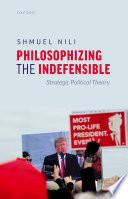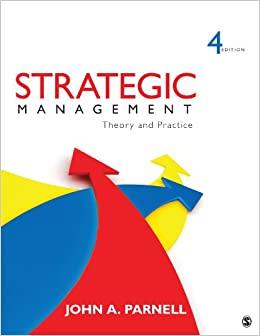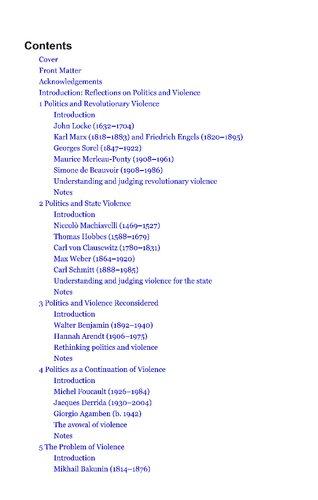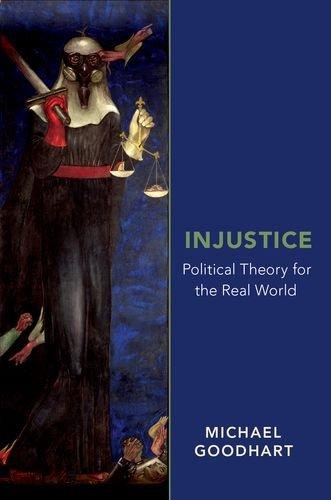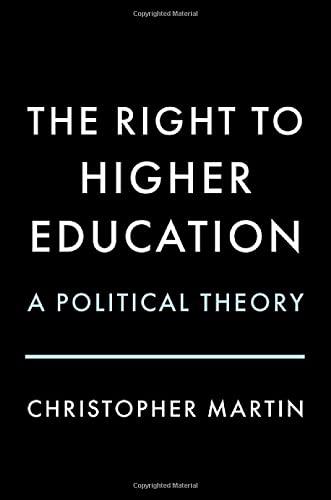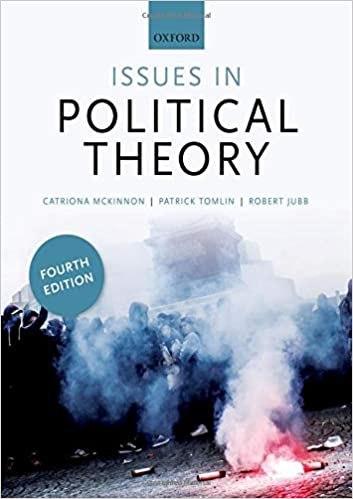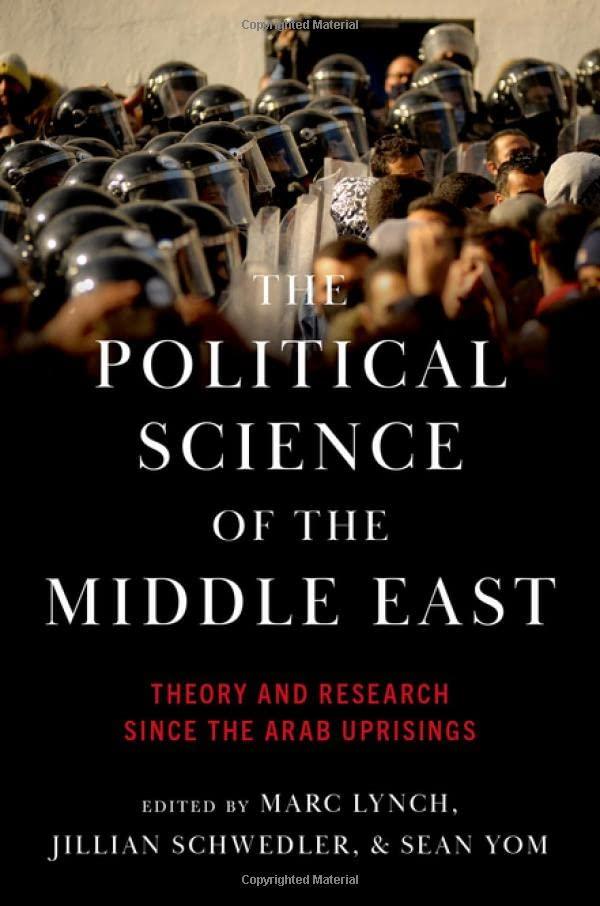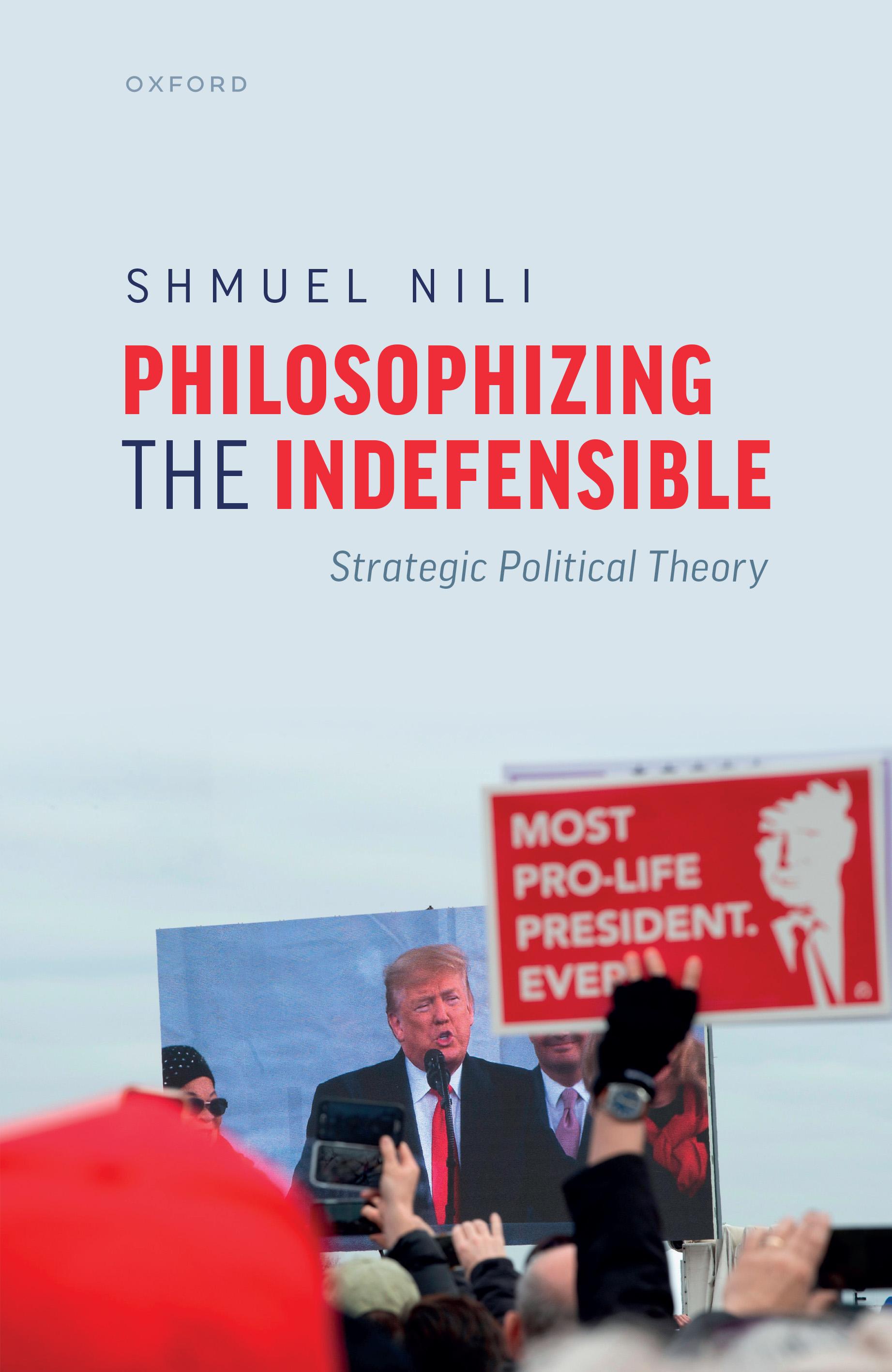Philosophizing the Indefensible: Strategic Political Theory Shmuel Nili Visit to download the full and correct content document: https://ebookmass.com/product/philosophizing-the-indefensible-strategic-political-theo ry-shmuel-nili/
More products digital (pdf, epub, mobi) instant download maybe you interests ...
Strategic Management: Theory and Practice https://ebookmass.com/product/strategic-management-theory-andpractice/ Spinoza and the Freedom of Philosophizing Mogens Laerke
https://ebookmass.com/product/spinoza-and-the-freedom-ofphilosophizing-mogens-laerke/
Violence and Political Theory Elizabeth Frazer
https://ebookmass.com/product/violence-and-political-theoryelizabeth-frazer/
Injustice: Political Theory for the Real World Michael Goodhart
https://ebookmass.com/product/injustice-political-theory-for-thereal-world-michael-goodhart/
The Right to Higher Education: A Political Theory
Christopher Martin
https://ebookmass.com/product/the-right-to-higher-education-apolitical-theory-christopher-martin/
Strategic Management: Theory: An Integrated Approach
Charles W.L. Hill
https://ebookmass.com/product/strategic-management-theory-anintegrated-approach-charles-w-l-hill/
The Ethics of Exile: A Political Theory of Diaspora
Ashwini Vasanthakumar
https://ebookmass.com/product/the-ethics-of-exile-a-politicaltheory-of-diaspora-ashwini-vasanthakumar/
(eBook PDF) Issues in Political Theory 4th Edition
https://ebookmass.com/product/ebook-pdf-issues-in-politicaltheory-4th-edition/
The Political Science of the Middle East Marc Lynch
https://ebookmass.com/product/the-political-science-of-themiddle-east-marc-lynch/
PhilosophizingtheIndefensible Philosophizingthe Indefensible StrategicPoliticalTheory SHMUELNILI
GreatClarendonStreet,Oxford,OX26DP, UnitedKingdom
OxfordUniversityPressisadepartmentoftheUniversityofOxford. ItfurtherstheUniversity’sobjectiveofexcellenceinresearch,scholarship, andeducationbypublishingworldwide.Oxfordisaregisteredtrademarkof OxfordUniversityPressintheUKandincertainothercountries ©ShmuelNili2023
Themoralrightsoftheauthorhavebeenasserted Allrightsreserved.Nopartofthispublicationmaybereproduced,storedin aretrievalsystem,ortransmitted,inanyformorbyanymeans,withoutthe priorpermissioninwritingofOxfordUniversityPress,orasexpresslypermitted bylaw,bylicenceorundertermsagreedwiththeappropriatereprographics rightsorganization.Enquiriesconcerningreproductionoutsidethescopeofthe aboveshouldbesenttotheRightsDepartment,OxfordUniversityPress,atthe addressabove
Youmustnotcirculatethisworkinanyotherform andyoumustimposethissameconditiononanyacquirer
PublishedintheUnitedStatesofAmericabyOxfordUniversityPress 198MadisonAvenue,NewYork,NY10016,UnitedStatesofAmerica
BritishLibraryCataloguinginPublicationData Dataavailable
LibraryofCongressControlNumber:2023935455
ISBN9780198872160
DOI:10.1093/oso/9780198872160.001.0001
PrintedandboundintheUKby ClaysLtd,ElcografS.p.A.
LinkstothirdpartywebsitesareprovidedbyOxfordingoodfaithand forinformationonly.Oxforddisclaimsanyresponsibilityforthematerials containedinanythirdpartywebsitereferencedinthiswork.
ToMayaandItamar,stellarphilosophers, forilluminating Andtoourfamily—alwaysabeacon
Preface EversinceIarrivedintheUnitedStatestobeginmyPhD,I’vebeenaskedrepeatedlywhyIdonotwritemorepoliticalphilosophyaboutmycountryoforigin.My traditionalresponsewastosaythatitdoesnottakeaphilosophertoidentifymoral failuresinIsraelipolitics.Underlyingthisresponsewasamoregeneralthought: politicalphilosophersshouldtraintheirsightsonmoralquestionsthatgiveus pause,ratherthanonabhorrentpolicieswhosewrongnessisabundantlyclear.
Likemanyotherphilosophers,Ihavelongtakenthisconventionalwisdomfor granted.Overtime,however,doubtsemerged.Theconventionalwisdomcameto seemoverlyinsular—overlypreoccupiedwithpurelyintellectualconundrums,at theexpenseofpracticalissuesthatmattertopeopleintherealworld,andespecially totheworld’smostvulnerable.Mygeneraldisquietonthislargeissue,moreover, wasjoinedbyamorespecificsenseofpracticalhelplessnessinthefaceofthe ever-deepeningchasmbetweenIsrael’sfoundingidealsanditsrealities.Andthat helplessnesswasfurtheramplifiedin2016,whenmyadoptedcountryseemed determinedtocompetewithmynativecountryinmakingmanifestlyindefensiblepoliticalchoices.Ieventuallydecidedtowritethisbookinanattempttothink throughwhat,ifanything,politicalphilosophers—quaphilosophers—cancontributeinthefaceofsuchdoomandgloom.Throughout,thebookreflectsthe ongoingpoliticalpredicamentsofthetwolandsIknowmost.ButIhopethatits ideaswillbeofinteresteventothosewhowishtothinkaboutdifferenttimesand places.
Multipleplaces,institutions,andpeopledeservethanksforhelpingmeimprove theseideas.Ihavebenefitedtremendouslyfrompresentationsandconversations attheAustralianNationalUniversity,Flensburg,Northwestern,Yale,University CollegeLondon,andWarwick.ChrisArmstrong,ChristianBarry,GeoffBrennan(sorelymissed),SimonCaney,AvnerDe-Shalit,TomDonahue,LisaEllis, DavidEnoch,LiorErez,JesseHambly,BurkeHendrix,JeffHoward,LizzieKrontiris,PaulinaOchoa,TomParr,TiagoPeterlevitz,PhilipPettit,ThomasPogge, IanShapiro,MattVermaire,LeifWenar,andAlexZakarasallgenerouslydevoted timetothinkingwithmeaboutstrategicpoliticaltheory.TedLechterman,who readanentiredraftofthemanuscript,wasextragenerous,andIcanonlyregret notbeingabletoincorporateallofhisperceptivecomments.AgneskaBlochand ThomasAbers-Lourencoprovidedterrificresearchassistanceatdifferentstages. FinancialsupportfromNorthwestern’sCrownCenterforJewishandIsraelstudies facilitatedthemanuscript’stimelycompletion.
Chapter6updates,revises,andexpandsadiscussionofgreenenergyandpetrocratsthatIfirstofferedin“Environmentalreform,negativeduties,andpetrocrats: astrategicgreenenergyargument,” TheJournalofPolitics 77(2015):914–927.I amgratefultothejournal’seditors,andtotheUniversityofChicagoPress,for permissiontoreprintpartsofthisessayhere.
Lastbutnotleast,IamverygratefultomyOUPeditorDominicByattforhis adviceandpatienceasthemanuscriptevolved,andtothreeanonymousreviewers, fortheircomprehensiveandconstructivefeedback.Istronglysuspectthatthere aremorepeoplewhooughttobethanked,yetwhoIhavesomehowmanagedto forget.Icanonlyhopethattheywon’tfindmeindefensible.
Evanston,Illinois
November2022
PhilosophizingtheObvious? WheneverpeopleoutsidetheivorytowerinquirewhatIdoforaliving,IsaythatI amanacademic.Whentheyaskformyacademicfield,Ianswer:“politicalphilosophy.”Thisansweralmostalwayselicitsamorosecommentonthepresentstate ofpolitics.Butthekindestinterlocutorsoftenseem(oratleastpretend)tobelieve that,invirtueofmyacademicspecialization,Ihavesomethingusefultosayabout themosturgentpoliticalproblems.That,atanyrate,ishowIinterprettheubiquitousreply:“witheverythingthatisgoingoninpoliticsrightnow,youmusthave alottowriteabout!”
Thisbeliefhaslongcausedmeunease,because,likemostofmyfellowpolitical philosophers,Ihavespentalongtimefearingthatitisfalse.Morespecifically,I havelongfearedthatpoliticalphilosophershavelittle distinctive contributionto makeinthefaceofthemostpressingpoliticalproblemsoftheday.Themainreasonisthat,ontoomanydays,theseproblemsaremorallyobvious:theyconcern politicalchoiceswhosewrongnessisplainforalltosee.Infact,thewrongnessof thesechoicesisusuallyvastlyoverdetermined.Governmentsthatpursuepatently unjustwars;governmentsthatknowinglyincentivizelarge-scaleenvironmental destruction;governmentsthatdolittleornothinginthefaceofflagrantracialand genderdiscrimination;governmentsthatareplainlyguiltyofspectacularcorruptionandmismanagementofanythingfrompublicinfrastructuretopublichealth; ontheseandsomanyothertopicsthatdominatepoliticalheadlinesworldwide almostconstantly,Ihavelongworriedthatphilosophershavevirtuallynothingto add,quaphilosophers,tothepublicconversation.
Underlyingthisworryisthefactthatpatentlyindefensiblepolicies—by definition—featurenogenuinepuzzleorconflictingweightyconsiderations:such policiesinvolvenorealmoraldilemma.¹ Butwherethereisnomoraldilemma,it isnotclearwhatrolethereisformoralandpoliticalphilosophytoplay.Patently indefensiblepoliciesthereforeseemlikeamuchmorenaturalcauseforpolitical activismthanforpoliticaltheory.Whywouldanydecent,minimallyreflective citizenneedphilosopherstorecognizesuchpoliciesforwhattheyare?
Politicalphilosophershaveaccordinglytendedtodevelopargumentsthatlie ataremovefrompatentlyindefensiblepolicies,howeverurgentthebattleagainst
¹ Iamusing“moraldilemma”hereintheordinary-languagesenseoftheterm,connotingamorally complicatedchoice,ratherthaninthetechnicalsensefavoredbysomephilosopherstodescribetragic situations,whereineverypossiblechoiceinvolvessomemoralwrong. PhilosophizingtheIndefensible.ShmuelNili,OxfordUniversityPress.©ShmuelNili(2023). DOI:10.1093/oso/9780198872160.003.0001
suchpoliciesmightbe.Thisremovehasbeenapparentintwoways.First,asageneralmatter,totheextentthatphilosophersspendtimeonindefensiblepoliciesat all,theyoverwhelminglydosoonlyinordertoexaminequestionsthatariseinthe aftermathofsuchpolicies,and/orinresponsetotheirobviouswrongness.Under thisrubricfallissuessuchas:whooughttobearwhatkindofliabilityand/orremedialresponsibilityforthepolicy?Whooughttohavethepowerofassigningthe relevantliability?Whatkindsofindefensiblepoliciescallforinternationalaction, andhowcoercivecansuchactionbe?Whatisthemorallyappropriatewaytotreat victimsofcertainindefensiblepolicies?Whatmodesofresistancearejustifiablein thefaceofdifferentkindsofindefensiblepolicies?Howoughtapoliticalcommunityacknowledgeindefensiblepoliciesthatdominateditspast?Andsoon.²
Second,politicalphilosophershavealsospentconsiderabletimeonthetype ofmoraldisagreementthatpatentlyindefensiblepoliciesdo not involve—namely, reasonable disagreement.Thisisthekindofdisagreementthatariseswhenothers’moraljudgementsaboutagivenpolicyconflictwithours,eventhoughtheir reflectionsonthepolicyareclearlynolesscoherentandcompetentthanourown. Democratictheorists,inparticular,havebeenconcernedwiththeauthorityof majoritarianproceduresinthefaceofsuchdisagreement.Oughtweabidebythe willofademocraticmajority,despiteourconvictionthatourminorityviewofthe policyquestionisthecorrectone?Why—ifatall—doweowethemajoritysuch deference?Whatarethemorallimitstothisdeference?Andsoon.³
Bothofthesefamiliarapproacheshaveconsiderablemerits.Butinthisbook,I pursueadifferenttack.Ifocusdirectlyonpatentlyindefensiblepolicies,andon the unreasonabledisagreementswithwhichtheyareoftenassociated.Moreprecisely,Iassumethatpatentlyindefensiblepoliciesareexactlythosepolicieswhose wrongnessliesbeyondthescopeofreasonabledisagreement,meaningthatonly the unreasonablecanendorsesuchpolicies.Mygoalistodefendanewmethodof politicaltheorizing,whichmightallowpoliticalphilosopherstomakeadistinctive contributiontothesocialneedtoconfrontsuchunreasonableviewsandtheindefensiblepoliciestheyunderlie.Ifthismethodwillturnouttobesuccessful,then itwillshowthatpoliticalphilosophersneednotfeelentirelyhelplessinthefaceof themosturgentpoliticalfailures:philosophersmighthavesomethingfruitfulto sayinthefaceofthesefailuresafterall.
² Thephilosophicalliteratureoneachofthesetopicsisenormous.Theonlypartialexceptionisthe last,relativelyunderstudiedsubject,whichIhavetackledelsewhere.Seemy “PoliticalLeadersandthe MoralityofPoliticalHonors,” Ethics 130(2020):415–445.
³ See,e.g., AllenBuchanan,“PoliticalLegitimacyandDemocracy,” Ethics 112(2002); Thomas Christiano, TheConstitutionofEquality (Oxford:OxfordUniversityPress,2008),chap. 6; Daniel Viehoff,“DemocraticEqualityandPoliticalAuthority,” PhilosophyandPublicAffairs 42(2014): 337–375; NikoKolodny,“RuleOverNoneII:SocialEqualityandtheJustificationofDemocracy,” PhilosophyandPublicAffairs 42(2014):287–336; ZofiaStemplowskaandAdamSwift,“Dethroning democraticlegitimacy,”inDavidSobel,PeterVallentyne,andStevenWall(eds.), OxfordStudiesin PoliticalPhilosophy 4(NewYork:OxfordUniversityPress,2018),chap. 1.
I.1 TheIndefensibleandtheUnreasonable Itisbesttobeginwithmydefinitionof“reasonable”and“unreasonable.”In contemporarypoliticalphilosophy,theterm“reasonable”oftenhasaspecifictechnicalmeaning,associatedwithideascentraltoJohnRawls’laterwork.⁴Incontrast, thisbookusestheterm“reasonable”initseverydaysense.“Inthissense,”asDavid Enochwrites,“someoneisreasonableiftheyarereasoning,willingtolistentoreasoning,willingtorespondtoreasons.”⁵ Iuse“unreasonable,”inturn,todescribea residualcategory:theunreasonablearethosewhofailtorespondinminimally adequatewaystokeymoralreasonsthatareclearlypertinenttothepolitical subjectathand.Myassumptionthroughoutisthatonlytheunreasonable,thus defined,canendorsepatentlyindefensiblepolicies.
ThemodeofpoliticaltheorizingthatIdevelopinthisbookseekstoengage withtheunreasonableinaparticularway.Myaimistoexpandthescopeofintellectualoppositiontoindefensiblepolicies,byshowinghowthesepoliciesoughtto berejectedevenifweaccept,solelyforthesakeofdiscussion,extremelyproblematicpremisesassociatedwiththesepolicies’unreasonableadvocates.Thegoalisto showhowthepolicyconclusionsdesiredbytheseadvocatesdonotfollow,evenif weadopttheirperspectiveontheworld,arguendo,andevenif—crucially—wego beyondtheunreasonablethemselvesinmakingthisperspectiveassystematicand wide-rangingasitcanbe.Icallthisapproach strategicpoliticaltheory.Thebook’s centralambitionistoestablishthevalueofthisapproach,partlybyillustratingit indetail.
Inordertofurtherframethistask,Ishouldnowbeabitmorepreciseabout theterm“indefensiblepolicies,”towhichIhavealreadyreferredmultipletimes. Throughoutthisbook,Iwilluse“indefensiblepolicies”and“indefensiblepolitical choices”interchangeably.Thisterminologicalchoicereflectsthefactthatstrategictheorizingisnotmeanttoapplyexclusivelytopublic“policy”inthenarrow senseofthatterm—thatis,thesenseofformalgovernmentmeasures(typically) putinplacebypublicofficials.Rather,aswillbecomeclear,Ibelievethatstrategic
⁴ Accordingly,philosophicaleffortstoworkoutwhichformsoftolerationoraccommodation(if any)areowedto“unreasonable”citizenstypicallytaketheformofattemptstoworkthroughthespecificcommitmentsofRawlsianpoliticalliberalismastheybearonthesecitizens.See,e.g., ErinKelly andLionelMcPherson,“OnToleratingtheUnreasonable,” JournalofPoliticalPhilosophy 9(2001): 38–55; JonathanQuong,“TheRightsofUnreasonableCitizens,” JournalofPoliticalPhilosophy 12 (2004):314–335; GabrieleBadanoandAlasiaNuti,“UnderPressure:PoliticalLiberalism,theRise ofUnreasonableness,andtheComplexityofContainment,” JournalofPoliticalPhilosophy 26(2018): 145–168.WhileIamsympathetictotheseefforts,Iwanttocastabroadernethere,partlybecauseIam doubtfulthatthetechnicalRawlsiandefinitionof“reasonableness”maintainssufficientproximityto theeverydaysenseofthisterm.Myskepticismherefollows DavidEnoch,“AgainstPublicReason,”in DavidSobel,PeterVallentyne,andStevenWall(eds.), OxfordStudiesinPoliticalPhilosophy 1(2015): 112–142.
⁵ DavidEnoch,“TheMassesandtheElites:PoliticalPhilosophyfortheAgeofBrexit,Trumpand Netanyahu,” Jurisprudence (2017):1–22,at11.
politicaltheorizingcaninprinciplebeappliedtoaverywiderangeofindefensiblepolitical choices,regardlessoftheidentityoftheactorswhoaremakingthese choices.Thus,forexample,ordinarycitizensarenotnormallythoughtofas“policymakers”whencastingballotsinelections.But,asIgoontoshow,ordinary citizensintheirelectoralcapacitycanbethetargetsofastrategicargumentin muchthesamewayascanpublicofficials,ascan(forthatmatter)privatecompanieswhoarelobbyingforcertainpolicies.Similarly,membersofparliamentwho havetodecidewhethertovoteagivengovernmentintooroutofofficearenot typicallythoughttobevotingon“policy”inanydirectsense.Buttheirvotein favororagainsttheestablishmentofagivengovernment,aswewillsee,canalso bethesubjectofastrategicargument.Solongasthepoliticalchoiceinquestion isboth(a)patentlyindefensibleand(b)doesnotactuallyalignwiththepremises ofitsunreasonableproponents(oratleast,doesnotalignwiththestrongest,most systematicversionoftheirpremises),itcan,inprinciple,fallwithinthescopeof thestrategicmethod.⁶
However,inordertokeeptheinquirytractable,Iamgoingtofocusonfour mainvariantsofindefensiblepoliticalchoicesorpolicies.Itakethesevariantsto correspondtofourtypesofseriousfailuresofreasoning.⁷ First,ifagivenpoliticalchoicenotmerelyunderstates,but entirelyignores whatisplainlyavitalmoral factor,itqualifiesasindefensible,andanyonewhosupportsitqualifiesasunreasonable,simplybecausetheyfailtoaccountforthatcrucialfactorinaminimally adequateway.Consider,forinstance,apolicythat,inthenameofprotectingproprietaryinformation,shieldschemicalindustriesemittingdangeroustoxinsfrom anyrequirementtorevealtoneighborswhoarebreathingthetoxinspreciselywhat substancesmightbethreateningtheirhealth.Suchapolicydoesnotmerelyunderstatethesignificanceoftheneighbors’moralclaimtoknowinformationthatis essentialtotheirhealth.Rather,thepolicyeffectivelyignoresthisclaimentirely. Thisfactsufficesforustodesignatethepolicyasindefensible,andanyonewho supportsitasunreasonable.
Second,apolicyisindefensibleifitreflectsanentirelyimplausibleinterpretationofacentralmoralfactor,and/orofitsrelationshiptoothercentralfactors. Policiesconcerningsexualbehavior,forexample,mustalwayspayattentionto
⁶ Thoughthereisanimportantnormativequestionastowhethertherearesomeindefensiblepoliticalchoicestowhichthestrategicmethod ought notbeapplied.AsIindicatebelow,chapter 1 explores thisquestionatlength.
⁷ ChristopherMcMahon,inarguablythemostelaboratetreatmentof“reasonabledisagreement”in theliterature,suggeststhatsuchdisagreementwithregardtopoliticalmoralityinvolveseither(1)differencesovervaluechoices,(2)differencesinvalueinterpretation,or(3)differencesintherelative prioritiesassignedtocompetingvalues.See McMahon’s ReasonableDisagreement (Cambridge:CambridgeUniversityPress,2009).Ifwefollowthistypology,thenwemightsaythatapolicy’swrongness liesbeyondthescopeofreasonabledisagreementifno minimallyadequate valuechoice,valueinterpretation,orpriorityassignmentwouldfailtorecognizethatthispolicyisunjustified.Myremarksin thebodyofthetextcanbeseenasawayofspellingoutdifferentwaysinwhichthis“minimaladequacy” demandcanbeviolated.
consentasapivotalfactor.Butagivenpolicy’sinterpretationofconsent,andof consent’sinteractionwithothermorallysalientfactors,suchasduressandcoercion,couldstillbesoimplausiblesoastorenderthepolicyindefensible.Thus therecanbenoreasonabledisagreementaboutthemoralwrongnessofapolicy whichtreatseven“consenttosex”extractedatgunpoint,forinstance,aslegally valid.Norcantherebereasonabledisagreementaboutthemoralwrongnessofa policythatrefusestorecognizemaritalrapeasacrime.⁸ Anyonewhosupports policiesofthissortisplainlyunreasonableinthesamebasicsensehighlighted above—namely,inthesenseoffailingtorespondinaminimallyadequatemanner tomoralreasonsthatareclearlygermanetothesubjectathand.
Third,apolicyisindefensibleifitdependsforitspurportedjustificationonfactualorempiricalassumptionsthataremanifestlyimplausible.Theassumptions inquestionmightpertaintothepastandpresent.Thus,forinstance,agovernmentiscarryingoutanindefensiblepolicyifitignoresincontrovertiblepastand presentevidenceregardingtheseverityofafast-spreadingdisease,andaccordingly failstodevoteadequateresourcestocombatingorcontainingthedisease.Inother instances,therelevantassumptionscanalsobecenteredonthefuture,takingthe formofextremelyimplausiblepredictions.Consider,forinstance,governments inaffluentdemocracieswhofearthatenforcingrudimentarylaborstandardsor environmentalregulationswillalienatemajorcorporationstosuchanextentthese corporationswillmovetoanothercountry.Inmanyinstances,suchfearscannot beentirelydisproven.Butinanyinstancewherethesefearsareextraordinarilyfar-fetched,thewrongnessofthepolicytheysupportliesbeyondreasonable dispute.
Fourth,multiplepoliciescanbeindefensiblewhentaken asaset.Thisisespeciallythecasewhentherisksinherentintherelevantpoliciesdependfortheir purportedjustificationonpremisesthataremutuallycontradictory.Suppose,for instance,thatinagivenplaceandtime,theonlymoralfactorsupportinganexecutiveimmunityclauseintheconstitution,withalltherisksofabuseofpowerthat suchaclauseentails,istheinterestinthestabilityofgovernment.Butsuppose furtherthattherelevantconstitutionfeaturesnotjustexecutiveimmunity;italso includesanuncheckedpresidentialprerogativetofireeveryotherpublicofficial: everyotherofficialservesatthepresident’spleasure,andwillberemovedfrom officeimmediatelyatthepresident’ssay-so.Thiscombinationrendersanappeal tothestabilityofgovernmententirelymoot.Soifthesamestabilityprovidesthe
⁸ Nor,totakeanadjacentexample,cantherebeanyreasonabledisagreementonthefactthatthe legalrepercussionsofrapecannotbeerasedthroughmarriagebetweentherapistandthevictim(contra thechiefjusticeofIndia’sSupremeCourt,whocausedanuproarbytellingadefendantaccusedofrape thathecan“solvetheproblem”by“simplymarrying”thewomanhewasaccusedofassaulting.See,e.g., AnuradhaNagaraj,“India’stopjudgeurgedtoquitforsuggestingrapedefendantmarryvictim,”Reuters, March5,2021,at https://www.reuters.com/article/us-india-women-rape-trfn-idUSKBN2AX1LV).
onlysupposedjustificationfortherelevantsetofconstitutionalprovisions,the wrongnessofthissetshouldonceagainliebeyondreasonabledisagreement.
Afewqualifications.IdonotmeantosuggestthatthefourtypesofflawsIjust laidoutaremutuallyexclusive:itisquiteeasytothinkofdeeplytroublingpolicies whichfeaturemorethanonetype.Partlyforthisreason,Ialsodonotwantto denythatthedistinctionamongthesetypescangetblurryinvariousinstances. Moreover,eventhoughallofthepoliticalproblemsthatIwilltakeupinthecourse ofthisbookexhibitatleastoneofthesetypesofflaws,Idonotmeantosuggest thatthefourtypesnecessarilyexhaustthecategoryofindefensiblepolicies.
Finally,Iwanttograntthat,insomecases,theremightbemeta-disagreementon whetherthewrongnessofagivenpolicyactuallyliesbeyonddispute.Isuspectthat suchdisagreementwilloftenbeduetothedisputantseffectivelytalkingpasteach other,operatingwith(moreorlesssubtly)differentconceptionsoftheissueunder discussion.Ifurthersuspectthatsuchmisunderstandingswilltypicallybedueto differentdefinitionsofthepolicy’sscope.Toanticipateatopicthatwillbecentral tochapters 5 and 6,evenamongthosewhoagreethatitisobviouslywrongfor democraticgovernmentstosupportseverelyrepressiveregimes,therecanbedifferentviewsonhowtodefinethecategoryof“severelyrepressiveregimes,”and/or onhowbroadistherangeofgovernmentactionsthat“support”suchregimes.So inborderlinecases,whereitisnotobviousthatagivenregimecountsas“severely repressive,”and/orthatagivendemocraticforeignpolicyactually“supports”this regime,theremaybereasonable(meta)disagreementonthemoralstatusofthe policyinquestion.⁹
I.2 WhatFollows:StrategicTheorizing,Intellectual Fanatics,andAmoralists Havingsketchedthekindsofpoliticalproblemsthatthebookexplores,Inowwant tobeabitmorespecificaboutthecontentofeachofitschapters.
Thefirst(andlongest)chapterisdevotedtoageneralpresentationanddefense ofstrategicpoliticaltheorizing,elaboratingonthestrategicefforttoarguefrom badpremisestobetterpolicies.Ilinkthisefforttoademocratichoperegarding
⁹ Admittedly,evenwhentherelevantdefinitionsarewidelyshared,meta-disagreementisstillpossible.Asawayofpreemptingexpectations,letmesayalreadyatthisstagethatIdonotaimtosettle suchmeta-disagreementsatanypointinthebook.Muchmoremodestly,Ionlywanttoregisterthe thoughtthatsuchdisagreementsarelikelytoincreaseinproportiontothepolicy’sdistancefromthe impositionofgraveharms.Thusforexample,noonewilldenythatsystematicallytorturinginnocents isobviouslywrong.Andveryfewwilldenythatitis(normally)obviouslywrongtobestowofficial honorsonpoliticalleadersresponsibleforthesystematictortureofinnocents,regardlessofanypublic achievementstherelevantleadersmightclaim.Butifbasicsocialstabilityisatstake,isitobviously wrongforagovernmenttolooktheotherwaywhenlargeportionsofsocietyexpressreverencefor suchleaders?Thelatterquestion,whichhasbeenrealinsocietiesrangingfromRussiatoChile,can triggerreasonabledisagreement,eveniftheformerquestionscannot.
thepossiblephilosophicalqualityofpoliticaldiscourse.Iarguethatrespectfor ourfellowcitizensrequiresthatweretainthishope,andexplainwhythestrategicattempttosystematizeevenunreasonableviewsheldbyourfellowcitizens embodiesmultiplevaluableformsofrespectamongco-citizens.Ialsoanticipate indetailakeyworry—namely,thatbyworkingtosystematizeunreasonablepositions,strategictheorizinglegitimatesreprehensibleviews.Irespondtothisworry intwomainways.First,Idistinguishbetween repugnant unreasonablepremises (whichstrategictheoristsshouldbeextremelyreluctanttodeploy)and nonrepugnant unreasonablepremises(whichshouldtriggerfarlessreluctance).Second,I introducetheconceptofthe burdensofpolitics:self-reinforcingpoliticaldynamics,whichimpededecentpeople’smoralreasoningaboutspecificareasofpublic policy.Iexplainwhytheviciouscyclesassociatedwiththeburdensofpoliticswarrantstrategicargumentationwhichutilizesproblematicpremises,withthehope thatthebetterpoliciestheysupportwillinturnfacilitateapublicdiscoursethatis moreconducivetobetterpremises.
Inthelatterpartofthechapter,Ianticipateskepticismconcerningstrategic theorizing’spracticalhopes.Morespecifically,Iaddresstheconcernthatthestrategicmethodistoofarremovedfromphilosophy’stheoreticalinquiries,andthat ithasslimprospectsofactuallycontributingtoreal-worldpolicydiscourse.I alsopreemptlikelyskepticismassociatedwithapurelyintellectualviewofpoliticalphilosophy.Lastly,Itakeupappliedissuesconcerningtheactualpursuitof strategictheorizing,bearingbothonthechoiceamongpossiblesubjectsforsuch theorizing,andontheaudiencethatstrategictheoristsshouldseek.
Buildingonthegeneralframeworklaidoutintheopeningchapter,eachof thebook’ssubsequentchaptersillustratesstrategictheorizinginactionbydelving intodetailedexamples.Inchapters 2 and 3,Iofferexamplesthatarecenteredon whatmightbetermed intellectualfanatics.Intellectualfanaticsareunreasonable because,whiletheirpositionsreflectgenuineengagementwithmoralreasons,this engagementisextremelylopsided:theirviewsreflectatunnel-visiondevotionto asinglemoralfactor,ortoaverynarrowsetofmoralfactors,attheexpenseofall otherfactors,towhichtheygiveimplausiblylittleweight,ornoweightatall.
Chapter 2 providesthefirstextendedillustrationofstrategictheorizingoperatingwithinthepremisesofintellectualfanatics.ThisillustrationfocusesonIsraeli politics,and,morespecifically,ontheindefensibleboycottofIsrael’santi-Zionist politicalpartiesbycertainJewishhawksintheIsraeliparliament(Knesset).IdiscussthisboycottinthecontextofrecurrenteffortsbyBinyaminNetanyahu,Israel’s longest-servingprimeminister,tosecureimmunityfromcriminalprosecutionfor multiplecorruptioncharges.Netanyahu’spersistencehasunitedpoliticiansofthe Israelileft,right,andcenterinanefforttoendhisincreasinglyauthoritarianrule. Yettheanti-Netanyahualliancehasbeenfatallyhamstrungbythefactthatsomeof itskeyhawkishmembershaverefusedtorelyonanti-Zionistvotesinparliament toactuallyformananti-Netanyahugovernment.Thishawkishrefusal,inturn,
combinedwithNetanyahu’sobstinacy,hasbeenakeycauseofIsrael’sunprecedentedpoliticalcrisis,featuringfivenationalelectionsinlessthanfouryears,the lastofwhichfeaturedadecisivevictoryforNetanyahuandhisJewish-supremacist backers.¹⁰
Inresponsetothishawkishobstinacy,Idevelopapairofstrategicarguments. Thefirstargumentisthatevenif(solelyforthesakeofdiscussion)oneadopts thehawks’intellectualfanaticismregardingthesupposeddangersofanti-Zionist swayintheIsraeliparliament,theirownrepeatedwarningsregardingthedangersofNetanyahu’scontinuedrulemusttakeprecedence:Thesedangersclearly justifynarrowlycircumscribedcooperationwithanti-Zionistparties,evenassumingthehawks’ownworldview.Thesecondargumenthighlightstherelevant hawks’explicitdisavowalofanyprejudicetowardsIsrael’sPalestiniancitizens, whooverwhelminglyvoteforanti-Zionistparties.Isuggestthat,contraryto thesehawks’rhetoric,theirprofessedcommitmenttotheequal“civic”rightsof Palestinian-Israelisdoesnotalignwiththeirboycottofthepartiesthroughwhich Palestinian-Israelisactinthecountry’spolitics.Thismisalignment,moreover, obtainsevenifoneaccepts,arguendo,thehawks’axiomaticrejectionoftherelevantparties’visionofIsraelasabinationalratherthanJewishstate.Iclosethe chapterbyconsideringIsrael’sextremelyshort-livedJewish–Arabgoverningcoalition(2021–2),explainingwhyboththegenesisandthepredictabledemiseofthis coalitionalignwithmyarguments.
Chapter 3 takesupintellectualfanaticsofadifferentsort,inalargely(though notentirely)differentcontext.Thischaptertargetssingle-issueanti-abortionvotersintheUnitedStates,heavilyassociatedwiththeChristianright.Iarguethat, contrarytofamiliarprogressivecritiques,thefactthattheChristianrighthasoverwhelminglybackedDonaldTrumpinrecentAmericanpresidentialelections— andisverylikelytocontinuetobackTrumpandhisassociatesinanyfuture election—doesnot,byitself,exposetheChristianrighttochargesofhypocrisy orinternalincoherence.Therealincoherence,Isuggest,lieswiththeChristianright’s anti-abortion rationaleforbackingTrump.Thisrationalehasbeen decisiveinright-wingChristians’liningupbehindTrump—relyingonTrump tonominatefirmopponentsofabortiontotheSupremeCourt,withaneye towardsoverturning Roev.Wade.But—Icontend—thisrationaleforsupportingTrumpdoesnotalignwiththeonlyrationaleforanti-abortionlawswhich remainsintactonceoneaccountsforoverwhelmingempiricalevidenceregardingtheconsequencesofanti-abortionlaws.Sincethereisunequivocalevidence thatanti-abortionlawsdonotactuallystopabortionsfromhappening,butmerely pushabortionsintotheshadows,theonlypossiblerationaleforanti-abortion lawsisanexpressiveone:Thethoughtmustbethatalegalbanonabortions hasintrinsicmoralsignificanceinsofarasitexpressesthepoliticalcommunity’s
¹⁰ See,e.g.,ThomasFriedman,“TheIsraelweknewisgone,” TheNewYorkTimes,Nov.4,2022.
disapprovalofabortions—andthusthecommunity’ssymbolicaffirmationofthe “equalhumandignity”ofabortion’svictims.However,Iarguethatevenifone adopts—arguendo—theimplausibleideathat(anyandall)abortionistantamount tomurder,thisexpressiverationalecannotalignwithavoteforDonaldTrump, giventheextraordinaryexpressiveoffensethatisinherentintheveryelevation ofTrumpintothehighestelectedofficeintheland.Trump’sblatantandrecurrentdisregardfortheequaldignityofnumeroushumanbeings,especiallyamong themostvulnerable,rendersincoherentanexpressiveanti-abortionrationalefor apro-Trumpvote.
Startinginchapter4,Iturnfromintellectualfanaticstoanotherbrandofunreasonableinterlocutors—theamoralists.Whereasintellectualfanaticsareexclusivelydevotedtoaspecificsubsetofmoralconsiderationspertainingtothe policyproblemswithwhichtheyarepreoccupied—attheexpenseofallother moralconsiderations—theproblemwithamoralistsisdifferent:Amoralistssimplyappealtowhatevernormativepremisesmightservetheirpragmaticinterests inagivencontext.
Theprimeexampleofamoralactorsinchapter 4,aswellasinthefinaltwo chaptersofthebook,isthatofcorporations.Myfocusoncorporationsinthelatterpartofthebook(or,moreprecisely,onwhata“corporatedefender”might saytodefendavarietyofcorporate-friendlygovernmentpolicies)followsdirectly fromtheaforementionedideaofthe“burdensofpolitics.”Astheopeningchapter makesclear,attentiontotheburdensofpoliticsshouldleadustoputcenter stageself-perpetuatingpoliticaldynamics,whichconstantlytiltthebasicpremises shapingpublicandpolicydiscourseeverfurtherawayfromreasonablestarting points.Andinthebeginningofchapter 4,Iarguethatspiralinginequalitycontinuouslycementstheabilityoftheeconomicallypowerful—particularly,ofglobal corporations—toshapecorepremisesunderlyingpolicydebates.Intheremainderofthebook,Iaccordinglymakeasustainedefforttocometotermswith corporations’self-reinforcingpoliticalclout.Idosobyseekingtojustifyimportantpolicyreformsgoingagainstcorporateinterests,evenwhileusing,arguendo, corporate-friendlypremises.
Withthatpurposeinmind,thelatterpartofchapter 4 examinestheAmerican legalsystem’sleniencewithregardtoseverewrongdoingbymajorbanks.Inrecent years,legalauthoritiesintheUnitedStateshavebeenextremelyreluctanttopursue criminalchargesagainsteithermajorbanksthemselvesortheirseniorexecutives, evenwithregardtoextremelyseveretransnationalcrimes,suchaslaunderingbillionsofdollarsfordrugcartels.Iconstructthemostplausiblejustificationthat corporatedefendersmightofferforthisreluctance.Thisjustificationappealsto fearsofdrasticnegativeconsequencesfollowingcriminalprosecutionofmajor banks,whilealsoappealingtotheconstraintsofcriminallawandthecomplexityof largecorporationstoshieldindividualexecutivesfromcriminalsanctions,despite thepositiveconsequenceslikelytofollowfromsuchsanctions.Ishowwhythese
twoappealsaredifficulttocombine.Ithenarguethatthecorporatedefender’sbest hopeofcombiningthemistoinvokeapublic/privatedistinction:toarguethatitis muchworseforpublicauthoritiesthemselvestoinfringeupontheconstraintsof criminallawwhenprosecutingindividualexecutives,thanitisforpublicauthoritiestoallowmajorbanksasprivateactorstoseriouslywrongotherprivateactorsin theirpursuitofprofits.However,Iarguethatthemyriadformsofsignificantpublic supportcurrentlyaccordedtothemajorbanksblurthisprivate/publicdistinction. Accordingly,thelargestbankshavetorelinquishsuchsupport—frombailoutsand hugegovernmentloanstomultipletaxsubsidies—asanecessaryconditionfor justifyingthelegalsystem’scurrentleniencetowardsthemandtheirexecutives.
Chapter 5 providesasecondexampleofstrategicpoliticaltheorizingwithin corporate-friendlypremises.HereItakeupthecommercialtiesthatmajorcorporationshavelongpursuedwithunsavoryregimes,providingsuchregimeswith nontaxrevenueinexchangeforstateproperty.Emphasizinganonconsequentialistpresumptionagainstsuchcustomaryties,Izoominontwocentralresponses thatacorporatedefendermightoffertotrytodefeatthispresumption.
Accordingtothefirst, vulnerableinnocents argument,customarycommercial tiesoughttobecontinuedevenwhentheybenefithighlyrepressiveregimes,since boycottingtheseregimesisboundtohurttheirvulnerablevictims.Thesecond argument,whichIlabelthechallengefromsoftauthoritarianism,holdsthatoutside ofafewextremecases,defactorulersoughttobetreatedbyoutsidersasrepresentativeofthepeopleoverwhomtheypreside,notleastbecausetheychannel thelion’sshareofpublicrevenuestowardspurposesthatarenotalientopublicinterests.Iexplainwhybothoftheseargumentsrestonflawedpremises,but whyreformofcustomarycommercialtiescanbedefendedevenwithinthese corporate-friendlypremises.Ideployanovelstrategyinrespondingtothevulnerableinnocentsargument:Icomparetheriskstoinnocentshighlightedbythis argumenttotherisksthata“nopayment”policyposesinthefaceoffamiliarransomdemandsmadebyhostage-takers.Iarguethatthecorporatedefenderhas difficultyaccountingforthegapbetweenourwillingnesstoconsiderarigorist policyinthesesmaller-scaleransomcases,andourreluctancetoendorsea“no payment”policyinthecaseofcommercialtieswithdictatorships.Thisdifficulty, inturn,leadsmetosuggestthatitisultimatelythechallengefromsoftauthoritarianismwhichistrulycentraltothecorporatedefender.Iaccordinglyillustratea creativestrategyfordealingwiththesoftauthoritarianchallenge.Finally,Ioutline policyprescriptionswhichtakeseriouslythenonconsequentialistimpulsefavoringreformofcustomarycommercialties,whilealsoaccountingforvulnerable innocentsconcerns.
Thefinalchapter6continuesthestrategicargumentationofchapter5,butfrom adifferentperspective,zoominginonthefossilfuelindustry’stieswithdictatorships.Linkingoilandgastradewithdictatorstoenvironmentalreform,Isuggest thatthenonconsequentialistpresumptionagainstcommercialtieswithdictators
canyieldadistinctiveargumentforthedevelopmentofgreenenergy,whichwill doawaywithaffluentdemocracies’overwhelmingrelianceonfossilfuels.
Morespecifically,recognizingtheunfortunatepublicsalienceofclimatechange skepticismintheUnitedStates,IseektoconstructanargumentforthedevelopmentofgreenenergythatcanappealtoAmericansmoderatelyskepticalofclimate changeandswayedbyvariousformsofcorporaterhetoricaboutenvironmental issues.Accepting—arguendoandinaqualifiedway—keyempiricalandnormativeassumptionsofAmericanenvironmentalskeptics,Iproceedintwostages. First,whileenvironmentalistshaveoftenjustifiedthedevelopmentofgreenenergy throughreferencestofuturegenerations,Itrytoshowthattheyneedapresentorientedargumentfocusedonnegativedutiestorespectrights,inordertojustify prioritizingthedevelopmentofgreenenergytoenvironmentalskepticsinthe UnitedStates.Second,Iconstructsuchanargument,callingonaffluentdemocraciestodevelopgreenenergyinordertobeabletostoptheircomplicity,through oilandgastrade,indictators’violationoftheirpeoples’propertyrights.Alongthe way,Ionceagainanticipatemultipleobjectionsthatthecorporatedefendermight make.
1 TheCaseforStrategicPoliticalTheory Whatcanpoliticalphilosopherscontributeinthefaceofpatentlyindefensible publicpolicies?Whatcanwesaywhenconfrontedwithpolicieswhosewrongnessliesbeyondthescopeofreasonabledisagreement?Astheintroductionmade clear,thisbookisdevotedtoaparticularmodeofphilosophicalengagementwith suchpolicies:craftingargumentsagainstthemthatbeginwith,andthatseekto systematize,unreasonablepremises.Thecoreideaistoexpandthescopeofintellectualoppositiontopatentlyindefensiblepoliciesbyusingpremisesassociated withunreasonableopponents,albeitinaqualifiedmannerandsolelyforthesake ofdiscussion.Irefertothisexerciseinphilosophicalcoalition-buildingasstrategic politicaltheorizing.Thisopeningchapterprovidesageneralaccountofthismode ofpoliticaltheorizing,anddefendsitsvalue.
Strategicpoliticaltheorizingbuildsuponastandardmodeofphilosophicalconversation.Philosophersfrequentlytrytoestablishthattheirfavoredconclusions followevenwhengranting,arguendo,thepremisesfavoredbytheiropponents. Thusanontrivialportionofprofessionalphilosophicalexchangetakestheform ofsaying“Ithinkthatthepremiseyouareinvokingisfalse,butevenifitweretrue, itwouldbemyconclusionratherthanyoursthatwouldfollow.”
Strategictheorizingexpandsthiscommonmethodintworelatedrespects.First, strategictheorizingdoesnotlimititselftoanisolatedpremisefavoredbythoseon theothersideofadispute:Instead,itexaminesmultiplepremisesthatcanbeplausiblyassociatedwithone’sopponents,andthatcanbebroughttogethertoforma coherentset.Second,strategicpoliticaltheorizingisnotconcernedsolelywith thefaultypremises—whethernormativeorempirical—thatone’sopponents actually endorse.Rather,strategicpoliticaltheorizingfocusesonthestrongest(most wide-ranging,internallycoherent,andatleastsomewhatintuitive)combination ofrelevantpremisesthatone’sopponentscould sensiblyendorse,giventheirmore general,long-establishedcommitments.
Strategicpoliticaltheorizingisdrivenbythethoughtthattherecanbevaluein suchembellishmentofopponents’views.Butthisthoughtmayalsoseemsomewhatmysterious.Why—criticsareboundask—shoulditevermakesensetotryto (re)castweakpositionsintheirstrongestpossiblelight?
Underlyingthisquestionisanaturalconcern:thatanyefforttoengageinstrategicpoliticaltheorizingrepresentsanunstablehybridbetweenpurenormative inquiryandpersuasion.Thereason,inturn,isthatthereisnostablemiddle groundbetweenstrivingforthemoraltruthaboutapublicpolicyissue,inclassic
philosophicalspirit,andstrivingtopersuadepeopletoadoptone’sfavoredpolicies.Persuasion,afterall,canoftencomeatthetruth’sexpense.BasvanderVossen providesaparticularlyexplicitstatementofthisconcern:
Philosophyisadisciplineofreason.Wetrytoreconcileourinitialviewsorintuitionswithabstractprinciplesweseereasontoaccept,renderingthewholeof ourbeliefsinternallyconsistentandasplausibleaswemighthopefor.Clearly, suchadisciplineneednotbeparticularlywell-suitedforproducingpersuasive views.Psychologiststeachusthatreasonisn’tgreatatpersuading.Whatreally swayspeople’sopinionsareappealstoemotionorsentiment...thethingthat changespeople’smindsisrarelythephilosophicalqualityofone’sargument.The standardsofsuccessforpersuasivenessofanargumentdonotcoincidewithits truth-value...It’sonethingtoknowtherightansweraboutsomething,quite anothertopersuadeothersofthatanswer.Andsayingthethingthat’spersuasive canrequiresomethingquitedifferentfromsayingwhat’strue.¹
Inordertodefendstrategicpoliticaltheorizingasarespectablephilosophical endeavor,onemustconfrontthistensionbetweenpersuasionandphilosophy’s traditionalquestfortruth.Iwillaccordinglytrytoaddressdifferentpermutations ofthistensionthroughoutthechapter.
Iproceedasfollows.Ibeginbytemporarilyputtingasidemyinterestinunreasonablepoliticalviews,insteadhighlightingabroaderdemocratichoperegarding thepossiblephilosophicalqualityofpoliticaldiscourse.Iarguethatrespectfor ourfellowcitizensgenerallybarsusfromcompletelyabandoningthishope,and explainwhystrategicpoliticaltheorizingembodiesseveralvaluableformsof respectamongcitizens(1.1and1.2).
Equippedwiththisgeneralbackground,Ireturnthefocustounreasonable politicalviews.Itakeuptheworrythat,inbeingwillingtoworkwithinsuchviews, evenifsolelyforthesakeofdiscussion,thestrategicpoliticaltheoristmightbe conferringlegitimacyonreprehensiblepositionsthatoughtnotbelegitimated.I respondtothisconcernbyreflectingonthedividebetweenwhatIcall repugnant and nonrepugnant unreasonablepremises(1.3and1.4).
In1.5and1.6,Idevelopafurtherresponsetotheobjectionthatstrategictheorizinggivesexcessiveattentiontoproblematicviews.Thisresponserevolvesaround whatIterm“theburdensofpolitics.”Iusethistermtocaptureself-reinforcing politicaldynamics,whichimpededecentpeople’smoralreasoningaboutspecific areasofpublicpolicy.Icontendthattheviciouscyclesassociatedwiththeburdensofpoliticsgiveusweightyreasonstoengageinstrategicargumentationthat deploysproblematicpremises,withthehopethatthebetterpoliciestheysupport
¹ BasvanderVossen,“PoliticalPhilosophyasLoveofWisdom,” AustralasianPhilosophicalReview 4(2020):23–31,at27.
willinturnpavethewaytowardsapublicsphereinwhichitiseasiertoreason frombetterpremises.In1.7,Iexplainwhythishopeiscompatiblewithmaintainingapresumptionagainstreasoningfromrepugnantpremises,evensolelyforthe sakeofdiscussion.
In1.8,Itakeupmultiplechallengesconcerningthepracticalaspirationsof strategicpoliticaltheory.HereIdiscussthechargethatthestrategicmethodsteps toofarawayfromphilosophy’stheoreticalinquiries,andthatithasslimprospects ofactuallycontributingtopublicdiscourse.
Finally,in1.9,Iconsiderappliedquestionsconcerningtheactualimplicationsof thestrategicmethodforitswould-bepractitioners.HereIfocusonhowstrategic theoristsshouldchooseamongpossiblesubjects,aswellasonhowtheyshould conceive—andapproach—theirmultipleaudiences.
1.1 Truth,Persuasion,andStrategicPoliticalTheory asActivistPhilosophy Letusbeginbydistinguishingamongthreedifferentwaysofbalancingtruthand persuasionindemocraticpolitics.First,thereiswhatwemightcallthepurely activistapproach.Thisapproachprioritizespublicpersuasionwheneveritcomes intoconflictwithtruth.Assumingthatthepublicgoal(beittheenactmentof somepublicpolicy,ortheendingofanother)isimportantenough,thepurely activistapproach—whetherpracticedbypoliticiansorbytheirbackers—licenses whateverdissimulationmightbenecessarytosecurepublicsupport.Ifpersuasion requiresonetopretendtobelievewhatoneknowstobefalse,sobeit.
Second,thereisthepurelyphilosophicalapproach,whichinsiststhatanypublic argumentonemakesmustberootedinprinciplesthatoneregardsastrue.Ifthis constraintlimitsone’sabilitytopersuadeothers,thenthatissimplyfurtherproof, astheoristssuchasvanderVossenwouldquicklypointout,thatthepracticeof philosophyisoftenatoddswithpublicpersuasion.
Strategicpoliticaltheorizing,however,representsathirdoption,whichwe mightterm activistphilosophy.Thestrategicpoliticaltheoristopenlyadmitsto herinterlocutorsthatshedoesnotsharesomeoftheirpolicycommitments.But shestillmakesaneffortatpersuadingherinterlocutorstoconvergeonwhatshe regardsasthecorrectmoralanswertotherelevantpolicyquestions.Shetriesto achievethisconvergencebyshowingtoherinterlocutorsthat,whencastintheir strongestandmostcomprehensivelight,theircommitmentshavedifferentpolicy implicationsthanthoseimplicationsthattheinterlocutorsthemselvescurrently recognize.²
² IampartlyinspiredherebywhatRawlscalled“reasoningfromconjecture,”amodeofreasoning inwhich“wearguefromwhatwebelieve,orconjecture,areotherpeople’sbasicdoctrines,religious
Strategicpoliticaltheoryisaformofactivistphilosophy,then,insofarasitaims atadistinctlyphilosophicalformofpoliticalpersuasion.ParaphrasingKant,we mightdubthis“persuasionwithintheboundsofreasonalone.”³ Thismethod isdemandinginitsrigoristrelianceonhonestargumentation:Byinsistingon truthfulnessinpublicdiscourse,strategicpoliticaltheoryretainsthebeliefthat neitherphilosophynorpubliclifeshouldmakepeacewithdeception.⁴ Alongside itsdemandingness,strategicpoliticaltheoryisalsoambitiousinitshoperegarding democraticcitizens’potentialcapacitytoreasonaboutpublicpolicy.Inthiskind ofdemocraticoptimism,strategicpoliticaltheoryconsciouslyfollowsthelikesof JohnDewey:
Democracyisawayofpersonallifecontrollednotmerelybyfaithinhuman natureingeneralbutbyfaithinthecapacityofhumanbeingsforintelligent judgmentandactionifproperconditionsarefurnished...Forwhatisthefaith ofdemocracyintheroleofconsultation,ofconference,ofpersuasion,ofdiscussion,informationofpublicopinion,whichinthelongrunisself-corrective, exceptfaithinthecapacityoftheintelligenceofthecommonmantorespondwith commonsensetothefreeplayoffactsandideaswhicharesecuredbyeffective guaranteesoffreeinquiry,freeassemblyandfreecommunication?Iamwilling toleavetoupholdersoftotalitarianstatesoftherightandthelefttheviewthat faithinthecapacitiesofintelligenceisutopia.Forthefaithissodeeplyembedded inthemethodswhichareintrinsictodemocracythatwhenaprofesseddemocrat deniesthefaithheconvictshimselfoftreacherytohisprofession.⁵
orsecular,andtrytoshowthemthat,despitewhattheymightthink,theycanstillendorseareasonablepoliticalconceptionthatcanprovideabasisforpublicreasons...However,itisimportant thatconjecturebesincereandnotmanipulative.Wemustopenlyexplainourintentionsandstatethat wedonotassertthepremisesfromwhichweargue,butthatweproceedaswedotoclearupwhat wetaketobeamisunderstandingonothers’part,andperhapsonours.” Rawls,TheIdeaofPublic ReasonRevisited,”inSamuelFreeman(ed.), CollectedPapers (Cambridge,MA:HarvardUniversity Press,1999),573–615.Thatsaid,IsharethecommonviewthatRawls’remarkshereareheavilyunderdeveloped(see,e.g., AndrewMarch, IslamandLiberalCitizenship:TheSearchforanOverlapping Consensus[NewYork:OxfordUniversityPress,2009];MicahSchwartzman,“TheEthicsofReasoning fromConjecture,” JournalofMoralPhilosophy 9[2012]:1–24; RobertTaylor,“ReligiousConservativesandSafeSex:ReconciliationbyNonpublicReason,” AmericanPoliticalThought 3[2014]: 322–340);GabrieleBadanoandAlasiaNuti,“TheLimitsofConjecture:PoliticalLiberalism,CounterRadicalisationandUnreasonableReligiousViews,” Ethnicities 20[2020]:293–311.Ialsosuspectthat religiousargumentation—towhichthebulkoftheresulting“conjecture”literaturehasbeendevoted— faces suigeneris challenges,whichdonotapplytoothercontextswherestrategicargumentationis pertinent.
³ March(IslamandLiberalCitizenship,23–33),paraphrasingRawls,similarlyspeaksof“persuasion fortherightreasons.”
⁴ AsRawlssaysinPoliticalLiberalism(NewYork:ColumbiaUniversityPress,secondedition,2005), 68,in“publicpoliticallife,nothingneedbehidden.”Tobeclear,mypointhereisnotthatanytechniquewhichgoesbeyond“cold”philosophicalargumentationisnecessarilyirrationalordabblesin deception.Asananonymousreviewerpointsout,art,lifestories,andappealstoempathyareexamples ofperfectlylegitimatemeansoftryingtoswayopinions,whichneednotnecessarilybeirrationalor deceptive.NothinginwhatIamsayinghereshouldbeinterpretedassuggestingotherwise.
⁵ JohnDewey,“CreativeDemocracy—TheTaskBeforeUs,”inJoAnnBoydston(ed.), JohnDewey: TheLaterWorks,Vol.14(Carbondale:SouthernIllinoisUniversityPress,2008),224–230,at226.
Deweyanoptimismisofcoursenotuniquetostrategicpoliticaltheory.Butstrategicpoliticaltheorydoescapture,inanespeciallydirectway,keymoralideaswhich (arguably)underlietheappealofsuchoptimism,startingwiththefundamental ideaofrespectamongcitizens.Insistingonviewingourfellowcitizensas(atleast potential)fellowreasonersisanessentialwayofrespectingthem,justasautomaticallywritingofffellowcitizensasinevitablylyingbeyondthereachofrational persuasionisaquintessentialexampleofdisrespect.Toinsist,forexample,that fellowcitizenswill always beinthethrallsofsomemalignideology,prejudice,or bigotry,orthattheywill always refusetolistentoanyargumentsthatthreaten theiramoralinterests,orthattheywill always lackthetemperamentorthecapacitytoengageinsustainedarguments,istoadoptnotonlyanimplausiblyfatalist mindset,butalsoanintrinsicallyobjectionableattitudetowardsfellowmembers ofthepoliticalcommunity.⁶
Strategicpoliticaltheorizing,however,goesfurtherthanthis.Toreiterate, strategicpoliticaltheorizingalsorequiresthatwestrivetorenderthecommitmentsofourpoliticalopponentsassystematicandcoherentastheycanbe—even whenthiseffortentailsvariousimprovementsoverhowouropponentsactually presenttheirviews.Strategicpoliticaltheorizing,inotherwords,demandsthat wemakeeveryefforttorenderourinterlocutors’commitments(broadlyconstrued)asintellectuallyrespectableaswecan,evenif(andpartlybecause)our ultimateaimistoshowhowtheseverycommitmentsshouldleadourinterlocutors toacceptpolicieswhichwefavorbutwhichtheycurrentlyreject.
Beforeproceeding,abriefremarkmightbeappropriateabouttheterminology thatIwillusetodescribethiseffort.Theideathatweoughttoexamineouropponents’ideasintheirstrongestlighthasavenerableintellectualhistory.Inrecent popularwriting,thisideahasbeencapturedthroughtheterm“steelmaning,”⁷ suggestinganobviouscontrasttotheubiquitouspracticeofpickingstrawmenas intellectualopponents.Butwhile“steelmaning”isanevocativephrase,Itakeit toconnoteaformofargumentationthattakesouropponents’actualpositions (moreorless)asagiven—simplyoptingtoconfrontthestrongestratherthan theweakestofthesepositions.Soweneedanothertermtocapturetheeffortto
Admittedly,someofDewey’slanguagehereistoostrong.Afterall,thosewhodefenddemocracyon Churchilliangrounds,astheleastworstformofgovernment,canconsiderthemselvesfirmopponents oftotalitarianstatesofanysort,whilestillendorsingthestatementthat“thebestargumentagainst democracyisafiveminuteconversationwiththeaveragevoter.”Thisstatementtooisoftenattributed toChurchill(tothechagrinoftheInternationalChurchillSociety—https://winstonchurchill.org/ publications/finest-hour/finest-hour-141/red-herrings-famous-quotes-churchill-never-said/).
⁶ Thisclaimplacesmeinthevicinityoftheever-expandingtraditionof“deliberativedemocracy,” thoughitshouldalreadybeobviousthatIammuchmoreinterestedinmanifestlynonidealpoliticalcircumstancesandproblemsthandeliberativedemocratstypicallyare.Forausefuloverviewof thehugeliteraturearguingforandagainstdeliberativedemocracy,see AssafSharon,“Populismand Democracy:TheChallengeforDeliberativeDemocracy,” EuropeanJournalofPhilosophy 27(2019): 359–376.
⁷ See,e.g., ConorFriedersdorf,“Thehighestformofdisagreement,” TheAtlantic,June26,2017,at https://www.theatlantic.com/politics/archive/2017/06/the-highest-form-of-disagreement/531597/
create thestrongestpositionthatouropponents could endorseinlightoftheir broader commitments.⁸ Forthismoreambitiousundertaking—developingopponents’argumentsinadeeper,morecoherent,andmorewide-rangingfashionthan ispursuedbytheopponentsthemselves—Iproposeagranderlabel: worldviewing.⁹Thislabelreflectsthedifferencebetweenstrategictheorizingandmuchmore run-of-the-millarguendoreasoning.Moreover,theterm“worldviewing”linksup withanattractivepictureofpoliticalphilosophers’placeintheacademicandsocial distributionoflabor—anissuethatwillprovesignificantinduecourse.
1.2 WorldviewingandRespectamongCitizens Isaidthatstrategicpoliticaltheoryembodiesamorallyimportantformofrespect towardsfellowcitizens.Thereareseveralreasonswhythisisparticularlytruefor worldviewing,astheactivityattheheartofstrategictheorizing.First,attempting toarguefromgeneralcommitmentsthatourinterlocutorsholdisawayoflooking attheworldthroughtheireyes—andthustakingseriouslytheirperspectiveonthe world.Suchan“effortatunderstanding”(toborrowBernardWilliams’propitious phrase¹⁰)representsanimportantwayofrespectingourfellowcitizens.
Second,topursueworldviewingwithourfellowcitizensistoimputetothem commitmentsthatarebothsincereandreflective.Topursueworldviewingwithour fellowcitizensisthustoascribetothemabasicintegrity.Thistooisanimportant formofrespectamongco-citizens:itisnaturaltothinkthatthereis(innormal circumstances,atleast)moralvalueinasocietywhosemembersaredisposed— andrecognizeoneanotherasdisposed—tovieweachotheraspeopleofintegrity thusconceived.
Inonesense,whatIjustsaidisfairlyobvious:Ifourinterlocutors’professed commitmentsareentirelyinsincereorunreflective,thereisnopointinreasoningwiththemabouttheimplicationsofthesecommitments.Butthepointgoes deeper.Weaccordyetanotherformofrespecttoourfellowcitizens,byimputing tothem—quasincere,reflectiveco-deliberators—agenuineinterestintracingout the fullimplications oftheirowncommitments.
⁸ Tobeclear,strategictheorizingdoessharewith“steelmanning”theideathatwenormallyoughtto takeourinterlocutors’policyviewsseriously,andtofocusfromtheoutsetonthebestversionofthese views.Whatsetsstrategictheorizingapartis(1)itsefforttofurtherstrengthenthatbestversion,and (2)todosothroughbroaderintellectualresourcesthatcanplausiblybeassociatedwiththerelevant interlocutors,butwhichtheythemselveshavefailedtodeploy.
⁹ Iowethisterm,inpart,totheinsightfulreflectionsin ZsoltKapelner’s“WhatCanWeOffer?,” inMegyerGyo¨ngyo¨si,ZsoltKapelner,ZsófiaÁdám,andIstvánFaragó-Szabó(eds.), OnWhatIt Is:PerspectivesonMetaphilosophy (Budapest:Eo¨tvo¨sJózsefCollegium,2016):333–343(discussed below).
¹⁰ BernardWilliams,“TheIdeaofEquality,”in ProblemsoftheSelf (Cambridge,UK:Cambridge UniversityPress,1973):230–249.
Theunderlyingthoughtheremightbedescribedasfollows.Wearenotmorally entitledtoabandonthehopethatourpoliticalopponentstoo,whetherornot theyarephilosophers,willappreciateeffortstosystematizetheirconvictionsabout publicaffairs,andtorendertheseconvictionsascomprehensiveandcoherentas theycanbe.Toinsistonviewingouropponentsinthislightisyetanotherway ofviewingthemaspeopleofintegrity.Whenweascribetoourfellowcitizensnot justsincerityandreflection,butalsoaconcomitantinterestinmakingtheirviewof theworldasunifiedandcompleteasitcanbe,wearereally“takingtheirintegrity seriously.”Here,forexample,isRonaldDworkin,layingoutthebackgroundfor hisfamousaccountofintegrityinthelaw:
Wewantourneighbourstobehave,intheirday-to-daydealingswithus,inthe waywethinkright.Butweknowthatpeopledisagreetosomeextentaboutthe rightprinciplesofbehavior,sowedistinguishthatrequirementfromthedifferent(andweaker)requirementthattheyactinimportantmatterswithintegrity, thatis,accordingtoconvictionsthatinformandshapetheirlivesasawhole, ratherthancapriciouslyorwhimsically.Thepracticalimportanceofthislatter requirementamongpeoplewhoknowtheydisagreeaboutjusticeisevident... weassume...thatwecanrecognizeotherpeople’sactsasexpressingaconception offairnessorjusticeordecencyevenwhenwedonotendorsethatconception ourselves.Thisabilityisanimportantpartofourmoregeneralabilitytotreat otherswithrespect,anditisthereforeaprerequisiteforcivilization.¹¹
Afurtherwaytospelloutthekindofrespectthatworldviewingembodiesis tocompareitwithanadjacentformofintellectualinquiry—namely,intellectualhistory.Intellectualhistoriansfrequentlypreach—andpractice—thevirtueof interpretativecharitywhenconsideringcanonicalworksinvariousareasofphilosophy,includingpoliticalthought.Andattheheartofthischaritableapproach ispreciselythewillingnesstoconsidernotonlythoseargumentsthatcanonical authorshave(explicitly)made,butratherthe best argumentsthat could possibly beimputedtothem,giventheirmorefundamentalcommitments.
However,inthecaseofthehistoryofideas,theefforttocastcanonicalargumentsintheirbestpossiblelightoftenreflectsacertainkindofintellectual deference.Itiscommonlyassumedthatthegreatsofthepastarewiserthanus.¹²
¹¹ RonaldDworkin, Law’sEmpire (Cambridge,MA:HarvardUniversityPress,1986),at166.My referenceto“takingintegrityseriously”consciouslyechoes Dworkin’s TakingRightsSeriously (Cambridge,MA:HarvardUniversityPress,1978).Therearesomeinterestingaffinitiesbetweenstrategic politicaltheorizingandDworkin’sclaim,introducedalreadyintheopeningpageofLaw’sEmpire,“that legalreasoningisanexerciseinconstructiveinterpretation,thatourlawconsistsinthebestjustificationofourlegalpracticesasawhole,thatitconsistsinthenarrativestorythatmakesofthesepractices thebesttheycanbe.”Ihopetodiscusstheseaffinitiesinmoredetailinfuturework.
¹² Asateacherofthehistoryofpoliticalthought,Rawls,forexample,wasemphaticonthisscore:“I alwaysassumed...thatthewriterswewerestudyingwerealwaysmuchsmarterthanIwas.Iftheywere
Thatisonekeyreasonwhywestrivetoseewhether,usingresourcesinternalto theirownviews,wecanfixwhateverapparentinconsistencieswediscoverintheir positions.¹³ Incontrast,strategicpoliticaltheorizinginvolvesnopresumptionthat theinterlocutorswhoseargumentswearepolishinghaveanyclaimtointellectualsuperiorityoverus.Weattemptto(re)constructthebestargumentthatthese interlocutorscouldmakeonthebasisoftheirgeneralcommitments,notbecause weassumethemtobegiantsonwhoseshoulderswestand,butatleastpartly becauseweassumethattheyaresimplyourequals.Anditisindeedthatequalitywhichunderliesthehopethatwecanpersuadeourinterlocutors,bycharitably reconstructingtheirpositions,thattheytooshouldsupportratherthanoppose thepracticalconclusionswefavor.
1.3 TheScopeofStrategicArgumentation Havinglaidoutsomeofthecontoursofthestrategicmethod,aswellitsbasicmoral appeal,Inowwanttoconsideracentralquestionaboutitsscope.Ontheonehand, themoralclaimsofthevictimsofpatentlyindefensiblepoliciesseemtomilitatein favorofengaginginstrategictheorizingwheneverthereisanonzeroprobabilityof swayingsomeopinionssoastoincreaseoppositiontotherelevantpolicy.So,ifthe argumentoftheprevioussectioniscorrect,andwealways ought toassumesuch probability,therearestraightforwardreasonstopursuestrategicpoliticaltheorizingtargetingvirtuallyanyindefensiblepolicy,nomatterhowreprehensibleare thepremisesthatonemustadoptaspartoftheexercise.Yet,ontheotherhand, thereistheintuitionthatsomepremisesarebeyondthepale—thattherearesome startingpointsforpoliticalconversationthatweshouldnotaccept,notevensolely forthesakeofdiscussion.Howshouldwenavigatethistension?
Myresponsetothisquestionistoadoptamiddleground.Ibelievethat thereshouldbeapresumptionagainstarguingfromcertainpremises,evenina
not,whywasIwastingmytimeandthestudent’stimebystudyingthem?IfIsawamistakeintheir arguments,Isupposedthey[thephilosophers]sawittooandmusthavedealtwithit,butwhere?So Ilookedfortheirwayout,notmine.”Rawls,“Someremarksonmyteaching,”quotedinSamuelFreeman’sEditor’sForewordtoJohnRawls,LecturesontheHistoryofPoliticalPhilosophy(Cambridge,MA: HarvardUniversityPress,2007),atxiii–xiv.Rawls’instructionstohisstudentsonreading Leviathan conveyasimilaridea:“inlookingatatextofthissort,whichissolarge,andwithsomanyelements init,ifyouaretogetasmuchoutofitasyoucan,youmusttrytointerpretitinthebestandmost interestingway...andtotrytogetasenseofhowtheoverallviewmightgo,ifyouputitinthebest way.Otherwise,Ithinkitisawasteoftimetoreadit,ortoreadanyoftheimportantphilosophers.” Rawls, LecturesontheHistoryofPoliticalPhilosophy,52.Foraninterestingdiscussionofsomeofthe difficultieswithsuchcreativeinterpretations,see MichaelFrazer,“TheModestProfessor:Interpretive CharityandInterpretiveHumilityinJohnRawls’sLecturesontheHistoryofPoliticalPhilosophy,” EuropeanJournalofPoliticalTheory 9(2010):218–226.
¹³ Anotherreasonisthatwe(arguably)acquiremoreconfidenceinourowntoolsforthinkingabout ourownpracticalproblems,totheextentthatwecantracethesetoolstoavenerableintellectual tradition,whosesupposedinternaltensionsweareabletoresolve(oratleastmitigate).
